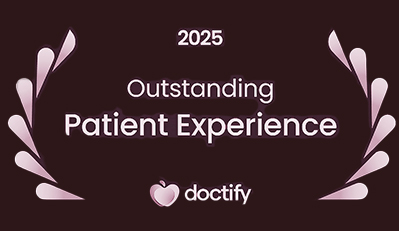
Who is not suitable for lens replacement surgery?
Lens replacement surgery is a popular and permanent way to reduce your dependence on glasses. It is especially useful for people over 45 who want clearer vision at all distances. It also removes the need for cataract surgery in the future.
But like all medical procedures, it is not suitable for everyone.
At Mitry Vision, patient safety comes first. That means we carefully assess every patient to make sure lens replacement is the right choice for their eyes and goals.
In this blog, we explain who may not be suitable for lens replacement and why.
What is lens replacement surgery?
Lens replacement surgery, sometimes called refractive lens exchange, involves removing your eye's natural lens and replacing it with an artificial lens known as an intraocular lens, or IOL.
The new lens is selected to match your vision goals. It can correct distance vision, near vision, astigmatism, or all three, depending on the lens chosen.
Who is a good candidate?
Most people over 45 with age-related changes in vision, such as presbyopia or early cataracts, are good candidates. If you are dependent on reading glasses, varifocals, or multiple pairs of glasses, lens replacement may be an ideal option.
It is also often a better alternative to laser eye surgery for people in this age group.
Who is not suitable?
There are some situations where lens replacement may not be advised. These include:
1. You are under 40 and have a healthy natural lens
Younger people with stable vision may benefit more from laser eye surgery. Your natural lens is still flexible and able to focus. Replacing it early may not be necessary unless there is another reason to do so.
We usually recommend laser procedures for people in this age group unless there is a medical reason to consider lens replacement.
2. You have advanced retinal problems
If you have diseases affecting the back of the eye, such as:
- Advanced macular degeneration
- Severe diabetic retinopathy
- Retinal detachment or high risk of it
Then lens replacement may not provide the vision improvement you hope for. The retina is responsible for capturing visual information, so if it is severely damaged, replacing the lens will not correct the underlying issue.
3. You have active inflammation or infection in the eye
Conditions like uveitis or conjunctivitis must be treated and settled before any eye surgery. Surgery in an inflamed eye carries a higher risk of complications and may delay healing.
Once the inflammation is under control, lens replacement may be reconsidered.
4. You have very shallow eye anatomy or other physical risks
Some people have very short eyes or narrow drainage angles, which may increase the risk of pressure spikes after surgery. In some cases, this can be managed with extra precautions. In other cases, it may mean lens replacement is not the safest choice.
A detailed scan during your consultation will help identify these risks.
Is it ever a temporary no?
Yes. Some people may not be suitable right now but could become suitable later. For example, if you are dealing with dry eyes or a temporary eye condition, we may recommend treatment first and then reassess.
What happens at your consultation?
At your consultation, you will have a full set of tests including:
- Vision testing
- Eye pressure measurement
- Corneal scans
- Retinal scans
- A detailed medical history.
All of this helps your consultant decide if lens replacement is right for you.
Final thoughts
Lens replacement is a life-changing procedure for many people, but it is not for everyone. The best way to find out is to take our self-test or book a consultation.
We will give you clear, honest advice based on your eye health and your goals.
Take our free self-test to find out if lens replacement surgery is right for you.
Find out if you are suitable for vision correction
Not everyone is eligible for vision correction surgery.
Find out if you could benefit from this life changing surgery by taking the quick self-suitability quiz below:




